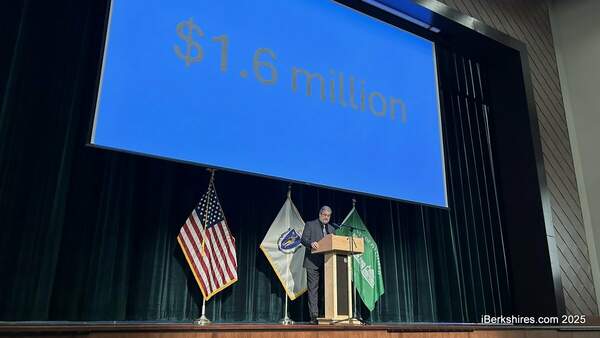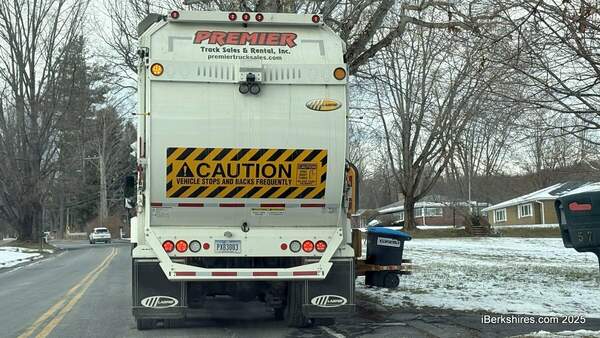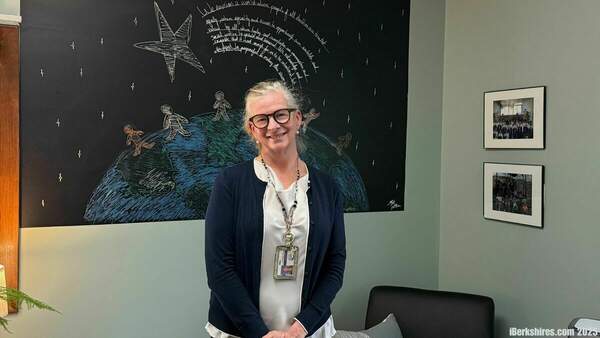Pittsfield Police 'Back on Track' for Body Camera Pilot
 |
| Finance Director Matthew Kerwood and Police Chief Michael Wynn explain the body camera pilot and their costs to the City Council on Tuesday. |
PITTSFIELD, Mass. — Following a union delay and a grant from the state, the Pittsfield Police Department is prepared to initiate a body camera pilot in the next week or so.
"I can say that all of the unanticipated issues that led to the delay at the end of October have been resolved and we're back on track," Chief Michael Wynn reported to the City Council on Tuesday.
This has been long anticipated, as body cameras have been requested by the council and community members since the police killing of Miguel Estrella in March.
Wynn walked the councilors through the events of the last month.
On Oct. 13, the initial pilot participants were supposed to be selected along with the temporary policy being put out and training scheduled. On the same day, he was notified of concerns from one of the police unions but did not cancel because no members of that union were selected to participate.
On Oct. 21, the department received a notice of a $166,500 grant from the state Executive Office of Public Safety and Security for body cameras but that information was embargoed until Monday evening.
A few days later, Wynn received word that the other police union will not be participating in solidarity with the first union.
On Nov. 1, after meeting with Director of Human Resources Michael Taylor, the chief notified both unions that he intends to serve them impact bargaining and start the program regardless of their concerns.
The outstanding unions' issue was resolved on Nov. 10 and the pilot program orientation is scheduled for Wednesday. The department is prepared to initiate the pilot by the end of this week or next week, Wynn said.
Councilor at Large Earl Persip III pointed out that Wynn has previously stated that the issues related to the technology and policy were all worked out. The chief confirmed that the delay was not related to the body cameras.
Persip asked if this was common practice and Wynn was stern about not discussing the matter in the public forum.
There will be two cameras on each shift and two assigned to the investigative section on both shifts. The equipment will be swapped between participating officers every four to six weeks.
The department intends to move forward with Axon as a provider.
Wynn clarified that the grant funding will not cover the entire cost of the pilot and said there "aren't really any entire costs" because it is an ongoing recurring expense for data storage and access.
If Axon is selected, the grant will go toward the first payment of about $106,000 and offset the second of $185,000 with free cash covering the gap.
Finance Director Matthew Kerwood explained that the city will not be purchasing the cameras.
"When I think we really started talking about this there was an understanding, perception I guess that we would be actually purchasing the cameras. That's not actually really the case. It's really a rental," he said.
"And what you're purchasing, and the cheapest piece of this is really the back office stuff, is the data, is the storage. It's the collection, it's not the cameras which ultimately for the city is a much better arrangement rather than putting out a million dollars upfront to buy cameras."
Persip is not opposed to using free cash but said it is important to look within the budget for funds on this.















